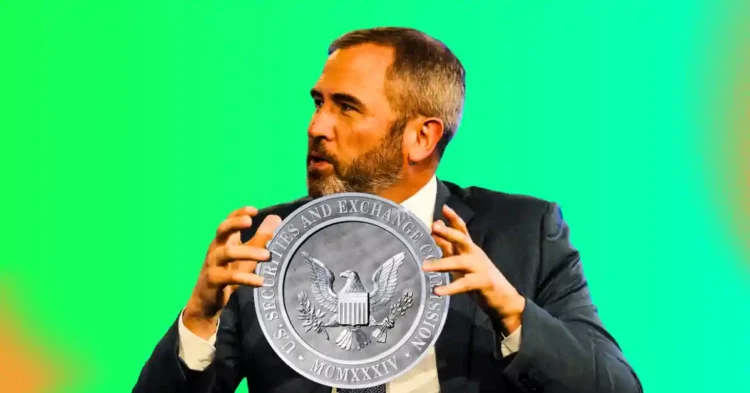In a landmark decision in July 2023, U.S. District Judge Analisa Torres ruled that the XRP token is not a security. This ruling was celebrated as a partial victory for Ripple Labs and the broader cryptocurrency industry. However, despite this legal decision, the U.S. Securities and Exchange Commission (SEC) remains steadfast in its assertion that XRP is indeed a security.
Brad Garlinghouse Takes a Stand Against the SEC
Ripple CEO Brad Garlinghouse has been vocal in his criticism of the SEC’s refusal to accept the court’s ruling. In a pointed tweet, Garlinghouse expressed his frustration, accusing the SEC of acting above the law by disregarding the court’s decision. His comments come in the wake of Bitnomial’s legal challenge against the SEC’s position on XRP futures.
Garlinghouse stated, “A new low for a renegade agency many thought couldn’t sink further. The SEC now believes it can operate above the law, ignoring a Court’s ruling that XRP isn’t a security. Team Ripple will be watching closely and weighing our own options to hold the SEC accountable.”
This strong stance is reflective of the ongoing tension between Ripple and the SEC, particularly in the context of Bitnomial’s lawsuit. Bitnomial, a crypto derivatives exchange, has challenged the SEC’s classification of XRP futures as “security futures,” arguing that these should instead fall under the jurisdiction of the Commodity Futures Trading Commission (CFTC), since XRP itself has not been deemed a security.
Regulatory Body or Bully?
The conflict between Ripple and the SEC has sparked widespread debate over the role and authority of regulatory bodies. Ripple’s Chief Legal Officer, Stuart Alderoty, has been outspoken in questioning the legitimacy of an agency that dismisses court rulings. He suggested that the SEC’s actions raise significant constitutional concerns.
If this were a law school exam, the scenario would be: A regulatory agency loses in court but still threatens enforcement to pressure compliance, further compromising the agency’s credibility. Alderoty emphasized that the SEC’s aggressive tactics are unconstitutional, highlighting the agency’s questionable approach to regulation.
Overreach or Necessary Oversight?
The SEC’s persistence in regulating XRP as a security has not only drawn criticism from Ripple but has also raised alarms within the broader crypto community. Legal experts, including pro-XRP lawyer Bill Morgan and John Deaton, have accused the SEC of overstepping its authority. They have questioned the motives behind the SEC’s actions, which some see as an unnecessary regulatory burden.
Deaton referenced a recent case involving Digital Licensing, where the SEC was sanctioned for misconduct. This incident has further fueled skepticism about the regulator’s approach, leading many to wonder if the SEC is overreaching its authority in its oversight of the crypto market.
The Future of XRP and Regulation
The ongoing legal battles and regulatory scrutiny surrounding XRP highlight the complex and evolving landscape of cryptocurrency regulation. As the debate continues, the crypto industry watches closely, mindful of the implications that these decisions may have on the future of digital assets and their regulation.
In conclusion, the clash between Ripple and the SEC serves as a pivotal moment in the dialogue around crypto regulation, with potential long-term impacts on the industry. Whether the SEC’s actions are seen as necessary oversight or regulatory overreach remains a contentious issue, with significant consequences for stakeholders on all sides.











